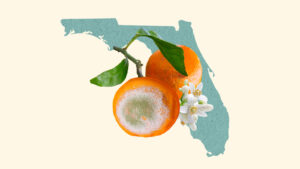Gardeners are searching for lost apple varieties by sequencing the genetics of trees in ancient orchards, hoping they have traits that could help the fruit survive climate change.
Heritage apple trees at the Royal Horticultural Society’s (RHS) garden Rosemoor will be sampled this spring with the aim of finding apple species enjoyed by humans hundreds of years ago.
It is hoped that some varieties that thrive despite problems with pests and the changing climate will have genetic traits that can be used to sustain the UK’s commercial orchards.
The University of Bristol and handcrafted cider maker Sandford Orchards will receive the genotype of apples from rare and important orchards across England, specifically looking at “survivor varieties” not previously recorded. Some trees may be the last of their kind, and their unique genetic code may be preserved as a result of the project.
Keith Edwards, an emeritus professor at the University of Bristol’s school of biological sciences, said: “When we first started this project we were overwhelmed by the public interest. The sheer volume of samples we’ve received in the mail is testimony to the importance of apples in the UK’s food landscape. The identification and conservation of lost or rare apple cultivars is not only about safeguarding biodiversity, it can also boost the UK apple industry’s resilience in the face of climate change.”
They also look at types of tree that have been grafted in the ancient past. Each tree grown from a seed has a unique genetic fingerprint, while some trees they look at will be grafted and share a fingerprint. If trees from two different orchards share the same genetic fingerprint, and are not already recorded in an existing collection, it means that at some point they were considered a good tree to grow, either for fruit to eat or cider -make.
The need to preserve the UK’s orchards is not just commercial; they’re also a very important habitat for pollinators and other wildlife, and one that’s dwindling, horticulturalists say. In addition to orchards cleared for development, some farmers have torn up theirs as growing challenges, including competing with cheap imports and climate change, have made it less commercially viable to be an apple grower.
Since 1900, 80% of the UK’s small orchards have been lost, so gardens like RHS Rosemoor are important because they preserve rare regional apple cultivars. Near the trees at Rosemoor is a wildflower meadow that attracts pollinators to the area, which in turn boosts the apple harvest.
to newsletter promotion
Barny Butterfield, founder and owner of Sandford Orchards, said: “The aim of this project is to find great apples, whether for fermentation, cooking or eating. By identifying ‘survivors’ that have not been propagated or kept in a collection, we have an opportunity to taste back in time and celebrate the incredible diversity of apples native to this country.”






